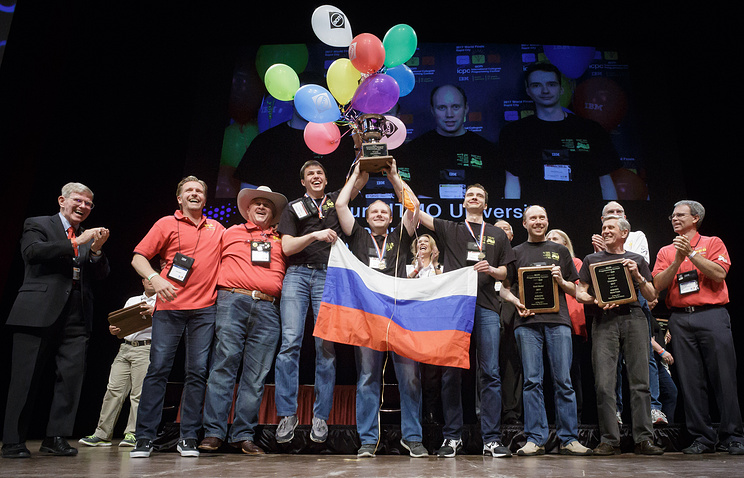
St Petersburg students are World Champions on Programming again
/ Главная / Russkiy Mir Foundation / News / St Petersburg students are World Champions on Programming againSt Petersburg students are World Champions on Programming again
25.05.2017

The title of World Champions on ACM ICPC programming was taken by students from National Research University of Information Technologies, Mechanics and Optics (ITMO) for the 7th time, as per TASS. The competition was conducted in Rapid City, SD, USA.
ITMO team found correct solutions for ten tasks out of twenty. At this, the students spent less time than the rest of participants. As was explained by the university, this factor and less number of futile attempts helped young people win another ACM ICPC Cup.
National Research University of Information Technologies, Mechanics and Optics took the record number of awards at World Championships on Competitive Programming. Three leaders include teams of Warsaw and Seoul Universities as well.
Last year champions from Saint Petersburg State University have not won any medals this time. They stopped one-step before winners’ podium to occupy the fourth place.
Thirty teams represented our country at the programming competition including three teams from Moscow and Saint Petersburg. Students from Saratov, Tomsk, Novosibirsk, Ekaterinburg, Perm and Petrozavodsk competed for the victory too.
ICPC is the most prestigious intellectual competition for young programmers organized by International Research Association of Computer Science and Technology for forty years already. Annually, dozens of university students from all across the world take part in this competition and hundreds of teams enter the final round.
Russkiy Mir
News by subject
Publications

 Mikhail Kalatozov, a director who transformed the world of cinematography in many ways, was born 120 years ago. He was a Soviet film official and a propagandist. Above all, he was capable of producing movies that struck viewers with their power and poetic language.
Mikhail Kalatozov, a director who transformed the world of cinematography in many ways, was born 120 years ago. He was a Soviet film official and a propagandist. Above all, he was capable of producing movies that struck viewers with their power and poetic language.